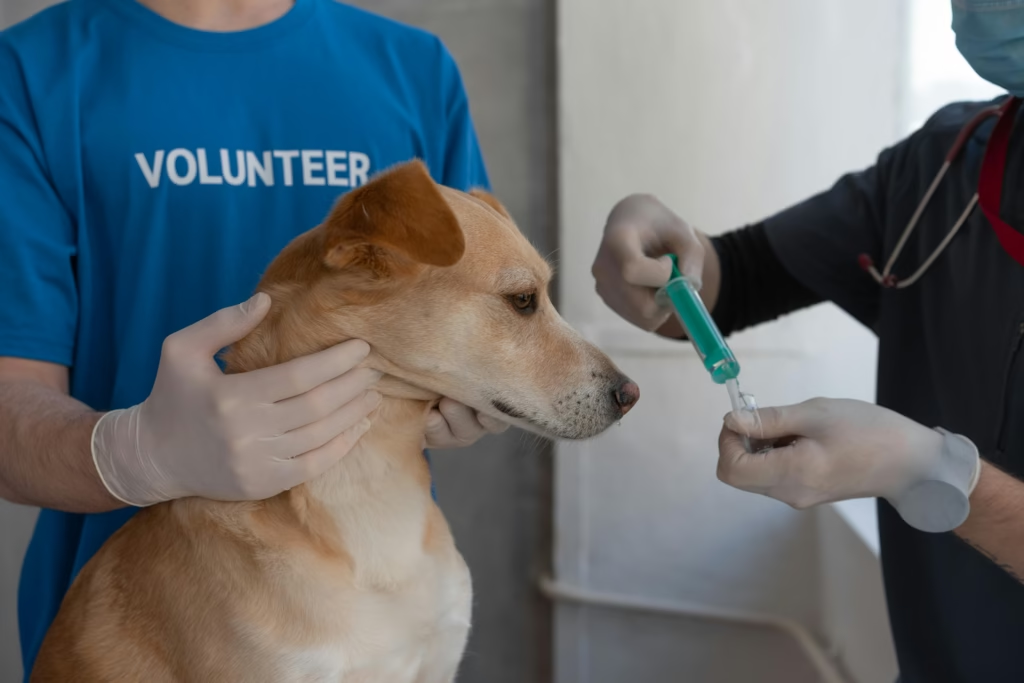It is a great tragedy for the man who likes their pet to lose or losing a dog. Here is also learning to recognize the signs of your dog dying, which can aid you when having this hard moment and there are ways to ease their discomfort in those days. And this identification is also why you should find a vet and get the right solution and also the correct diagnosis.(we will discuss about Dog is Nearing the End) However knowing the usual indications does let you decide these points for them.
Table of Contents
Physical Changes
There are many different changes that occur in the body of a dog close to death:
Loss of appetite and significant weight loss: A reduced interest in food accompanied with extreme loss of body mass is a common sign of decline.
Difference in behavior: Your dog is no more vigorous and energetic; he is less playing and walking, You may observe that his energy has dropped down significantly and now he just lays around all day or sleeps too long.
Breathing Changes: The person may have trouble breathing, but may also breathe rapidly or in an unusual pattern that suggests health issues.
Bowel Movement Changes: Constipation or diarrhea are signs of pain and sickness.
Fewer Groomings: With less regular grooming, mats and dirt can set into the fur.
Changes in urination: Changes in how we urinate like difficulty urinating or frequent need to urinate could indicate kidney or bladder problems.
Behavioral Changes
Sadly, in addition to physical changes, you might also notice some behavioral adjustments as your dog nears the end of his or her life:
Isolation and Withdrawal: Your dogs may begin to withdraw and want to be alone more than usual.
Changes in Personality: Being irritable; anxious, or more purposeless
Getting confused or disoriented: Symptoms of cognitive decline include confusion/disorientation.
More status barking: For some dogs, this may come in the form of increased night time vocalisation.
When to Seek Veterinary Care
If you notice any of these symptoms, you should go to your veterinarian. They can assess your dog, diagnose any underlying problems and begin treatment, if needed.

The Role of a Veterinarianb
An inflamed ear or chicken allergy may sound like a bad combo but with the right treatment from your vet, it can lead to some very special doggy moments. They can:
Conduct thorough reviews and audits to identify possible issues.
Management options: Suggest therapeutic strategies (e.g., meds, surgery, support)
Quality of Life: Help evaluate your dog’s quality of life as well as when the time may come for euthanasia.
Remember Your Feelings: Be as supportive and be there for them while the both of you are handling this situation.
The Decision to Euthanize
Picking to euthanize a cherished pet is never simple. Your dog’s quality of life will be the most important factor in your decision, though, so keep that front and center. Now here are some things to keep in mind:
Incurable Pain If your dog is enduring intense pain that cannot be managed with medication, then putting them to sleep could be the right option.
Rapidly Deteriorating: If your dog is plenty painful and declining exponentially, euthanasia permits him a painless end.
Extreme Weight Loss and Appetite: Too much weight loss and very little appetite can lead to open health problems of the person.
Difficult Breathing: If your pet is really having trouble breathing, euthanasia is usually a good option since they are not going to be able to breath well in the long run.
Not doing the basic things: If your pet no longer eats, drinks or poops, probably euthanasia is a good idea.
The Euthanasia Process
The euthanasia process is meant to be as peaceful and serene as possible. Your dog will first be given some mild sedation to settle him down followed by the fatal dose that will put your dog to sleep. The entire thing takes almost no time and effort.
Coping with Loss
Say if your pet died, this is a time of great emotion. Things to do while grieving:
Allow Yourself to Grieve: Let it, not bottle Release: sorrow, rage and grief.
Interact With Support: Participating with friends, family members, or a bereavement mental health professional and revealing your feelings to them.
Self-Care: Focus on yourself, both physical and mental disciplines.
Consider A Doggie Memorial: Plant a tree in memory of your dog, or make an animal charity donation in their name.
As In end
As tempting as it is to scoop them up and tell them to hang on for dear life, the whole point in spotting the signs your dog is dying is that you should give your pooch the last few days on this earth in peace. But although this is a painful and confusing time, you can help ensure your beloved dog goes peacefully and with dignity by consulting your vet for advice, making informed choices, and getting support when you need it.
